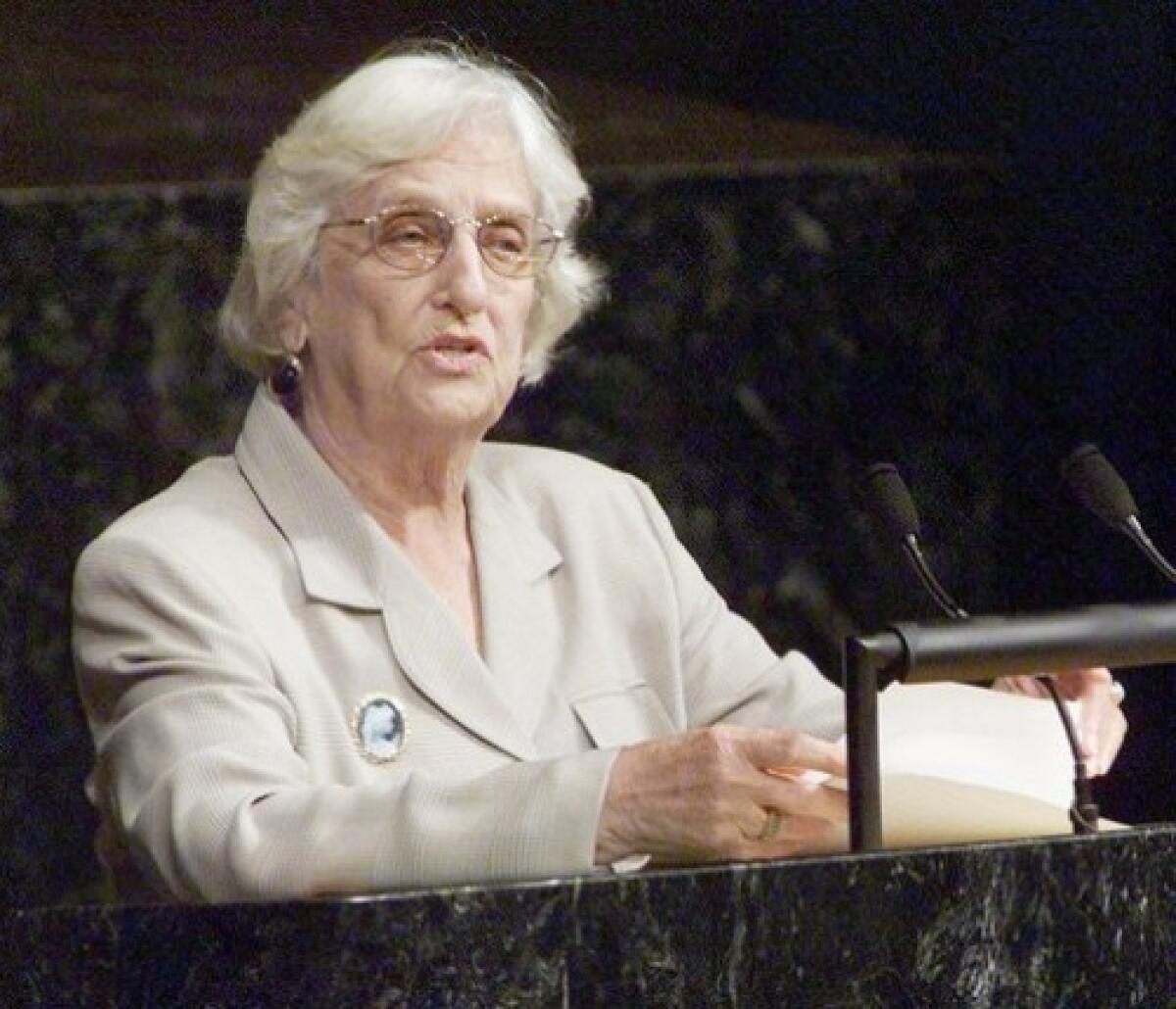Janet Jagan dies at 88; Chicago nursing student became president of Guyana

Janet Jagan, a Chicago nursing student who became Guyana’s first white and first female president decades after immigrating to the region, died Saturday. She was 88.
Jagan died at the country’s state-run Georgetown Public Hospital of an abdominal aneurysm, according to government officials.
In 1963, Time magazine called her “the most controversial woman in South American politics since Eva Peron,” partly because she was a “strident Marxist” who many believed was the “brains and backbone” behind her husband’s leftist government.
Her husband, Cheddi Jagan, a Guyanese descendant of Indian immigrant sugar-plantation workers, was premier of what was then British Guiana.
“I’m an activist,” she told the magazine, denying that she was overly influential. “People either hate me to infinity or love me to death.”
She was a 77-year-old recent widow when she succeeded her husband as the country’s president in 1997. On his deathbed, he reportedly asked her to “carry on.”
Elections in Guyana have often been disputed and volatile. Citizens of East Indian ancestry usually back the party that has ruled since 1992, while those of African descent historically vote for the opposition People’s National Congress.
When Jagan was elected, the results were disputed and her victory was not declared for days. Her presidency lasted 20 months and was plagued by opposition protests. She resigned in 1999, weeks after having a heart attack.
Donald Ramotar, general secretary of the People’s Progressive Party, told Agence France-Presse on Saturday that “she gave all her life to the struggle for Guyana’s independence and democracy.”
She was born Janet Rosenberg in 1920 into a middle-class Jewish family in Chicago. She met Cheddi Jagan, a dentistry student, at Northwestern University. She quit nurse’s training at Chicago’s Cook County Hospital and defied her parents to marry him in 1943.
They soon moved to British Guiana, intent on starting a socialist revolution. He set up a dental surgery practice and she was his assistant. The couple quickly became involved in labor politics and helped found the People’s Progressive Party in 1950. She was the party’s first secretary-general, a post she held for two decades.
During civil unrest, the Jagans were arrested in 1955 and held as political prisoners for several years, largely because of their communist leanings.
First under British rule and then after Guyana gained independence in 1966, she served in a variety of roles, including in Parliament and as minister of home affairs, of labor, of health and of housing.
“Thunder in Guyana,” a documentary by a cousin of Janet Jagan’s that aired on PBS in 2005, tried to explain how a Midwestern Jewish woman ended up trying to change the world in Guyana. One relative said she did it for love.
Then in her 80s, Jagan said in the film that her identification with the underdog could have been the result of growing up Jewish in America.
Jagan had two children and five grandchildren, according to her website.
More to Read
Start your day right
Sign up for Essential California for the L.A. Times biggest news, features and recommendations in your inbox six days a week.
You may occasionally receive promotional content from the Los Angeles Times.





